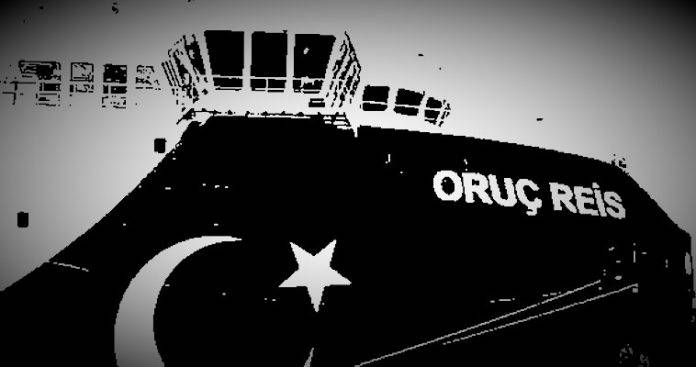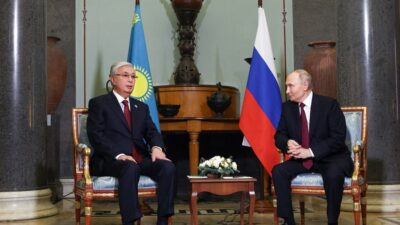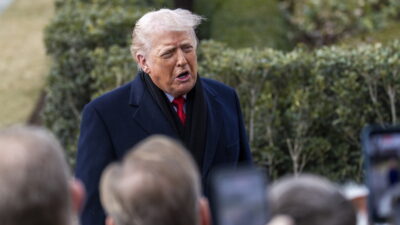Giorgos Iliopoulos: Turkish over-expansion creates an opportunity for Greece
18/09/2020
When the current ruling Justice and Development Party took power in Turkey at the beginning of the new century, the basic principle that supposedly governed the country’s foreign policy was “zero problems with neighbors”, according to Davutoglu. This policy was accepted not only abroad but also at home, creating a climate of trust unprecedented for Turkey.
Almost two decades later, almost all the countries in the region face problems, confrontations, friction, and conflicts with Turkey, resulting in the creation of an openly anti-Turkish environment. The moves of the Erdogan regime have been “pregnant” with ill forebodings for a long time, since the formation of the energy triangle of the Eastern Mediterranean (Egypt-Israel-Cyprus) in 2011. Ever since and while Ankara has had the luxury of effective maneuvering, it prefers to move aggressively, effectively ruining its opportunities.
It is gradually creating a chain reaction of conflictual situations that go against the Turkish interests, without, however, taking into account some historical data that support reactions. Hostile relations with Greece and the memories of the 1974 invasion of Cyprus are rekindled. Also, the full support of the Muslim Brotherhood in Egypt has created a rift with the regime in this country. Finally, the persistent denial of the Armenian Genocide and the search for Ottoman greatness are causing tensions in Turkey’s relations with its neighbors.
The fuse
The gratuitous shot at the ambitions of the Erdogan regime is given by the formation of the energy triangle of the Eastern Mediterranean, which creates conditions for enormous wealth, although the geological conditions do not allow its equal distribution. Egypt and Israel and secondarily Cyprus are undoubtedly the most favored countries in the region so far.
Then Ankara made its first fatal mistake. Instead of approaching and exploiting a series of advantages in negotiations with these countries to secure its participation, it chose to use unilateral offensive tactics that unite against it the three countries and of course Greece, which is also under Turkish expansionist pressure.
At that stage, and based on the assessments of his secret services, Erdogan considered that Greece and Cyprus are catalytically disadvantaged in terms of their military power and decided to grossly violate international law, risking a conflict with two EU member states, of which one is also a member of NATO.
His policy of illegal exploration and drilling in the Cypriot EEZ is eventually pushing him further and further into the path of violating international law and provoking tensions with almost all neighboring countries. A typical example is the illegal Turkish-Libyan memorandum, which was condemned by almost the entire international community.
While Erdogan’s initial goal was to make the most of the potential energy wealth of the Eastern Mediterranean, his overtly aggressive stance is causing intense instability in North Africa and the Middle East. Turkish mercenaries are being deployed in Libya, but also on the Armenian front in support of Azerbaijan, to the detriment not only of Armenian but also of wider Russian interests.
The ideological conflict
Turkish military intervention in Libya is currently postponing the fall of the government in Tripoli and preventing the cancellation of the illegal Turkish-Libyan pact. Attempts by the Turks and Sarraj’s forces to seize Sirte and the region’s oil wells have been unsuccessful and have been abandoned for the time being.
The decisive Turkish intervention in Libya pushed France to support Moscow behind the scenes and, with the help of Egypt, the United Arab Emirates and Saudi Arabia, to form a coalition that strengthens General Haftar, a former CIA operative. At the center of the rivalry on Libyan soil is Egypt, which for years has been embroiled in an ideological conflict with Turkey over its support for the Muslim Brotherhood.
The Egyptian parliament has already approved military intervention in Libya if required, although Ankara is arrogant in believing that Egyptian forces are at a disadvantage and will eventually avoid getting involved. The bombing of the Turkish assets at the al-Watiya base in western Libya, however, showed otherwise. Cairo is taking important strategic steps to put pressure on Ankara before attempting to move to Libya. One of the most important focuses on supporting the Kurds in northern Syria.
Syrian syndrome and Greek-Egyptian agreement
This move is drawing in the Emirates and Saudi Arabia, which are rushing to strengthen ties with Syria’s Kurds, following a long tour by Kurdish SDF leader Mazlum Kobane. The military nature of the otherwise diplomatic contacts, confirms that in the Arab world there is an almost unanimous view (with the exception of Qatar) on the strategy of stopping Ankara’s aggressive plans in the Middle East, and especially in the Arab countries.
In addition, Cairo is effectively pulling the strings for Syria’s return to the Arab League, an action that will strongly strengthen its member states’ cooperation with Damascus and maximize the possibilities for coordinating action to address the Turkish threat in the Middle East.
Erdogan’s recent moves in Libya in conjunction with the orgy of illegalities in the Cypriot EEZ and in a potential Greek EEZ provoke the Egypt-Greece rapprochement. Completely wrong, Ankara considers that the pressure of the Muslim Brotherhood in the Arab country is capable of preventing the Sisi government from any attempt to cooperate with Greece.
Eventually, a strategic alliance emerges with the obvious element of the partial delimitation of the EEZ, which for 15 years had been the subject of fruitless negotiations and regressions. Following the signing, Ankara resorted to a rather failed communication campaign, describing the agreement as a blank document!
The only thing left for the Erdogan regime to do is to maintain the ranks of the Turkish fleet, seismic vessels and drilling rigs in the Eastern Mediterranean, desperately trying to convince Turkish public opinion that it is fighting vigorously to secure Turkey’s “fair” share of energy wealth.





